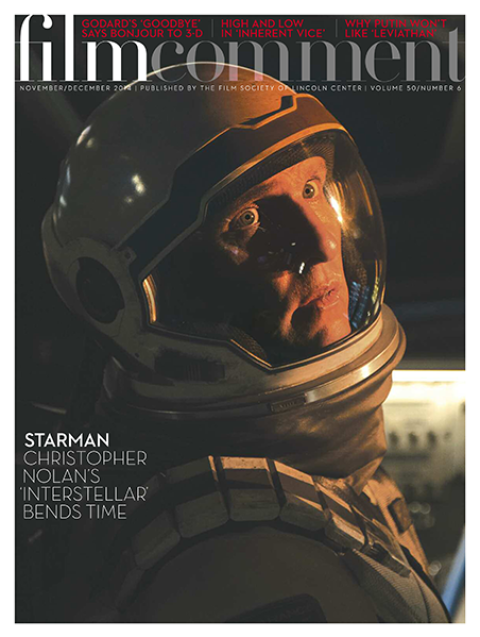In Alejandro G. Iñárritu’s all-points bulletin on artistic reinvention, second-act salvation, and the existential crisis of men in capes, there’s a moment when Michael Keaton leaves both the ground and the last tether of realism behind. We’ve already seen his character—Riggan Thomson, former star of the billion-dollar-grossing superhero tent-pole “Birdman” movies—levitating in his dressing room like a swami. We’ve seen this would-be thespian telekinetically hurl objects across his dressing room in the St. James Theatre, as, in a bid for artistic credibility, he mounts a Broadway adaptation of Raymond Carver’s short story “What We Talk About When We Talk About Love.” And we’ve heard the nagging voice in Riggan’s head, the one that keeps gruffly telling him that he was a fool to walk away from his money-printing franchise, and we’ve seen it (meta)physically manifest itself as his alter ego in full plumage—a superhero with no use for a superego.

Then come the explosions, the giant metal screeching bird hovering over New York City, the chaos, the panic, and the army jets whizzing overhead. This is a job for Birdman, defender of truth, justice, and A-list stability. And with that, Keaton suddenly launches into the air, gliding over Gotham with a serene look on his face. He’s left behind this blockbuster outtake and we’ve gone from digressive day trips into Riggan’s imagination to a headlong plunge into his fractured psyche. Up, up, and away.
Birdman or The Unexpected Virtue of Ignorance is many things: a backstage farce, a satire of media ubiquity, a portrait of career resurrection that’s enabled its star and director to effect their own professional resuscitations, a drama about squandered potential. But what this extraordinary work does best—indeed, better than most films about the emotional void of show business—is drop us into the mind of an actor beset by insecurities, vanity-project hubris, and that inner critic who simply won’t shut up, whisking us up into a dazzling, dizzyingly subjective whirlwind.

Part of this is thanks to Keaton, an actor who’s always been dynamic yet only rarely been asked to go deep. Never mind the wink-nudge Batman baggage his most iconic role provides by the simple fact of his presence; his performance here might seem to be penance for the times he’s coasted on charm alone. Asked to negotiate a minefield of self-hatred and neediness, remorse and blind rage, Keaton far surpasses expectations and then some. We’ve seen him do funny and dead-eyed dispassionate, but the open-book vulnerability he displays in Birdman feels new. Credit is also due to his co-stars, notably Edward Norton’s parody of manic Method-acting excess and Andrea Riseborough’s jaws-of-life take on the spurned leading lady/objet d’amour, but this is Keaton’s showcase. He’s finally dropped the mask.
But the other half of the equation is Iñárritu, a talented director who seemed stuck in a misery-porn rut with films like Babel and Biutiful. You knew that he was capable of juggling narratives like bowling pins, and when you have a cinematographer like Emmanuel Lubezki making the film appear to be one long continuous shot, the results easily elicit “how did they do that?” awe. But this is not just a feat of technical virtuosity for its own sake; the Steadicam shots and the unbroken performances are key to getting you into Riggansville, Population 1. And for all the impeccably coordinated antics and digs at press-junket banality and cold-blooded critics, the “stunt casting” and catty dialogue, what you’re left with is more than just an artist rediscovering what fun it is to make movies and mousetraps. You’re watching someone drop the self-seriousness and somehow get more profound in the process. The main character is an actor, but the guy spilling his guts on the stage and wondering if he can still hack it (yes, he can) is also the guy behind the camera. You can almost hear Iñárritu saying: “Birdman, c’est moi.”








